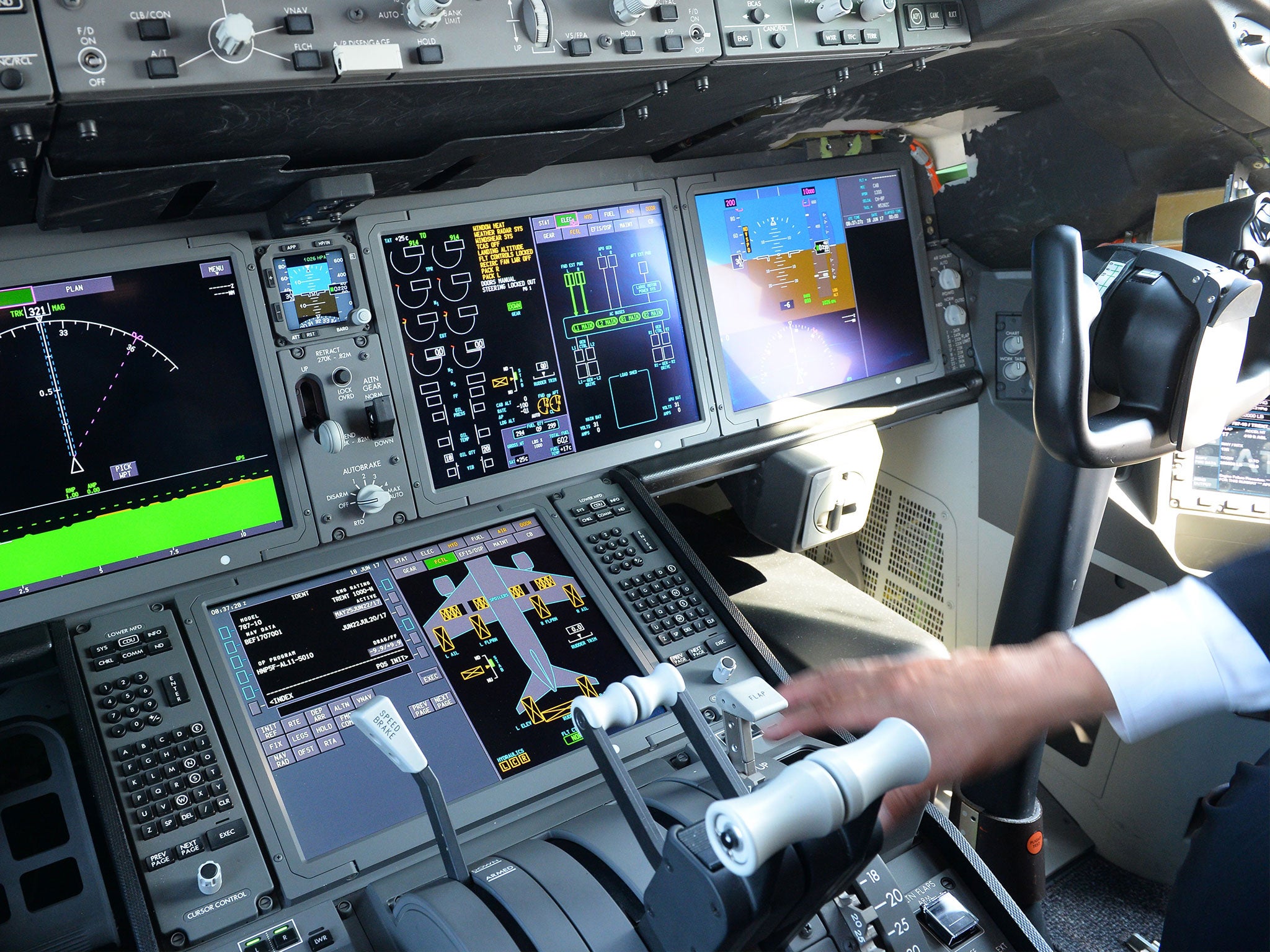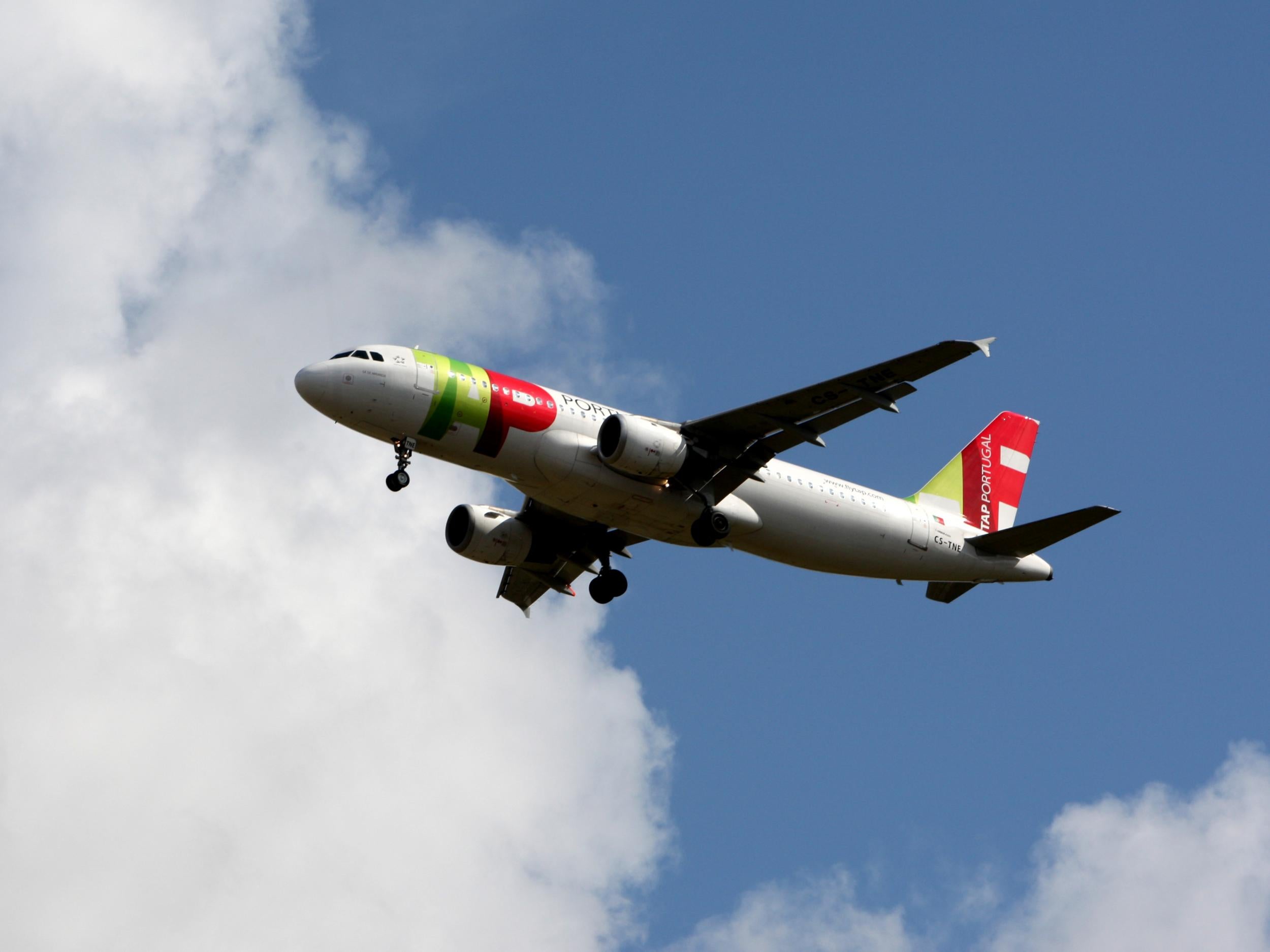Airline pilot reveals the meanings of 23 code words passengers don't understand
What does 'holding pattern' actually mean?
For most of us, flying is often an inherently mysterious activity.
To shed some light on the world of commercial air travel, Patrick Smith gave some answers. Smith is not only an author and aviation blogger, but he is also a long-time commercial airline pilot flying Boeing 757 and Boeing 767 jets.
Smith, who wrote "Cockpit Confidential," compiled a glossary of commonly misunderstood airline jargon on his website, AskThePilot.
According to Smith, some of the terms are highly technological while others are quite humorous and even a bit absurd. Here's a selection of entries:
"Doors to arrival and crosscheck."
Used in a sample sentence: "Flight attendants, doors to arrival and crosscheck."
Definition: The announcement, usually made by the lead flight attendant as the plane is approaching the gate, is to verify that the emergency escape slides attached to each door have been disarmed — otherwise the slide will deploy automatically as soon as the door is opened.
"All-call."
Used in a sample sentence: "Flight attendants, doors to arrival, crosscheck and all-call."
Definition: According to Smith, all-call is usually part of the door arming/disarming procedure. "This is a request that each flight attendant report via intercom from his or her station — a sort of flight attendant conference call," he wrote.
"Holding pattern."

Definition: "A racetrack-shaped course flown during weather or traffic delays," Smith wrote. "Published holding patterns are depicted on aeronautical charts, but one can be improvised almost anywhere."
"At this time."
Used in a sample sentence: "At this time, we ask that you please put away all electronic devices."
Definition: Now. Smith calls this phrase "air travel's signature euphemism."
"Flight level."
Used in a sample sentence: "We’ve now reached our cruising altitude of flight level three-three-zero. I’ll go ahead and turn off the seatbelt sign."
Definition: "There’s a technical definition of flight level, but I’m not going to bore you with it," Smith wrote.
According to the long-time airline pilot, flight level is simply a fancy way of saying how many thousands of feet the plane is above sea level.
"Just add a couple of zeroes. Flight level three-three zero is 33,000 feet," he explained.
"Last minute paperwork."
Used in a sample sentence: "We’re just finishing up some last minute paperwork and should be underway shortly…"
Definition: For many of us, this announcement is a precursor to a delay. According to Smith, this "paperwork" is usually a revision of the flight plan, something to do with the plane's weight-and-balance record, or simply waiting for the maintenance staff to get the flight's logbook in order.
"Ground stop."
Used in a sample sentence: "Sorry folks, but there’s a ground stop on all flights headed south from here."
Definition: "The point when departures to one or more destinations are curtailed by air traffic control; usually due to a traffic backlog," Smith wrote.
"Air pocket."
Definition: A colloquial term for a jolt of turbulence.
"Equipment."
Used in a sample sentence: "Due to an equipment change, departure for Heathrow is delayed three hours.”
Definition: The airplane. "Is there not something strange about the refusal to call the focal object of the entire industry by its real name?" Smith wrote.
"Flightdeck."
Definition: Cockpit.
"First Officer (Co-Pilot)."
Definition: The first officer or co-pilot is the second in command of the plane and sits on the right side of the cockpit wearing three stripes on his or her shoulder.
"He or she is fully qualified to operate the aircraft in all stages of flight, including takeoffs and landings, and does so in alternating turns with the captain," Smith wrote.
"Final approach."
Used in a sample sentence: "Ladies and gentlemen, we are now on our final approach into Miami."
Definition: "For pilots, an airplane is on final approach when it has reached the last, straight-in segment of the landing pattern — that is, aligned with the extended centerline of the runway, requiring no additional turns or maneuvering," Smith wrote. "Flight attendants speak of final approach on their own more general terms, in reference to the latter portion of the descent."
"Deadhead."

Definition: According to Smith, a pilot or flight attendant who is deadheading onboard a flight is one that is traveling to a destination to be repositioned as part of an on-duty assignment. "This is not the same as commuting to work or engaging in personal travel," he clarified.
"Direct flight."
Definition: Whether or not a flight is "direct" has nothing to do with how many stops it makes on the way to the destination. Instead, a direct flight is defined as a routing where the flight number does not change.
"This is a carryover from the days when flights between major cities routinely made intermediate stops, sometimes several of them," Smith wrote.
"Nonstop flight."
Definition: A flight that doesn't make any stops along the way.
"EFC time."
Used in a sample sentence: "We've been given an EFC time of 15 minutes after the hour."
Definition: EFC time is short for expect further clearance time. It's also sometimes referred to as a release time. The EFC time "is the point at which a crew expects to be set free from a holding pattern or exempted from a ground stop," Smith said.
"Wheels-up time."
Definition: Wheels-up time "refers to the point when a ground-stopped plane is expected to be fully airborne," Smith explained.
The flight and ground crew must have the plane "at or near the runway as close to this time as possible."
"The ramp."
Used in a sample sentence: "We’re sorry, your suitcase was crushed by a 747 out on the ramp."
Definition: The ramp is the area closest to the terminal where planes and vehicles are active such as the aircraft parking zones.
Again, this is a relic from the early days of aviation. "In the early days of aviation, many aircraft were amphibious seaplanes or floatplanes. If a plane wasn’t flying, it was either in the water or it was 'on the ramp,'" Smith wrote.
"Alley."
Used in a sample sentence: "We're waiting for another plane to move out of the alley."
Definition: It's a passageway between terminals or ramps.
"Apron."

Definition: According to Smith, the apron is pretty much any expanse of pavement that's not a taxiway or a runway. This includes areas where planes are parked or serviced.
"Final and immediate boarding call."
Definition: "A flamboyant way of telling slow-moving passengers to get their asses in gear," Smith wrote. "It provides more urgency than just 'final call' or 'last call.'"
"Area of weather."
Used in a sample sentence: "Due to an area of weather over New Jersey, we'll be turning southbound toward Philadelphia."
Definition: According to Smith, this usually means a thunderstorm or a zone of heavy precipitation.
"The floor area."
Used in a sample sentence: "Please check the floor area around your seat for personal items."
Definition: The floor.
Read more:
• Fifteen sentences your interviewer does not want to hear
• I flew 16 hours nonstop on one of the world's busiest international routes in economy class — here's what it was like
• 16 skills that are hard to learn but will pay off forever
Read the original article on Business Insider UK. © 2018. Follow Business Insider UK on Twitter.
Join our commenting forum
Join thought-provoking conversations, follow other Independent readers and see their replies
Comments
Bookmark popover
Removed from bookmarks